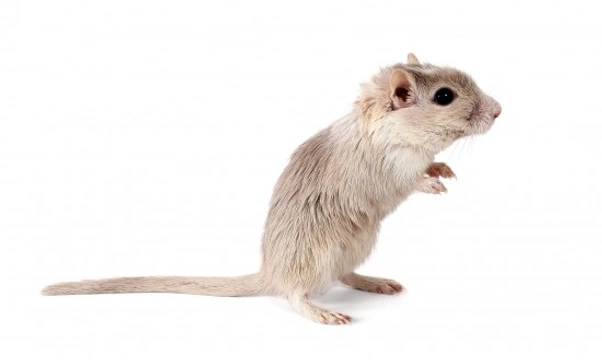
Health problems common to pet gerbils
If you keep a gerbil, the chances are that it is a Mongolian gerbil, the most commonly kept variety in the UK. Mongolian gerbils are robust and hardy little animals that do not generally suffer from a lot of health problems, and should live to around four years old when correctly cared for. However, there are a few health problems that can crop up in gerbils with a reasonable degree of regularity, so it is important for the gerbil owner to be aware of them, and take steps to protect their pet from contracting any disease, illness or health condition, and know how to identify a problem if it does occur.
Read on to learn more about keeping Mongolian gerbils healthy, and how to spot the most commonly found problems that gerbils can be prone to.
Providing a stable temperature
Keeping a comfortable, stable temperature in your gerbil’s cage is vital to keeping them happy and healthy, and the temperature of your gerbil’s home should never drop below 10 degrees Celsius. It is also vital to protect your gerbil from overheating, so ensure that their cage is not within the glare of direct sunlight, or right next to a radiator. During the summer months, make sure that your gerbil has a way of keeping themselves cool, such as by directing a fan into their enclosure.
Choose your bedding with care
Gerbils are sensitive to allergies and dermatitis when kept on unsuitable bedding, and you should avoid using wood shavings that are from particularly oily trees or that are highly scented. Avoid pine and cedar shavings, as these can lead to contact dermatitis, respiratory infections, and sores and infections around the nose.
Dental issues
Gerbil’s teeth continue to grow throughout their lives, so it is important to make plenty of toys and chews available to your gerbil so that they can keep their teeth at a healthy length and wear them down naturally. Left unchecked, overgrown teeth can mean that your gerbil is not able to eat properly, so keep an eye on the length of your pet’s teeth and do what you can to provide enough gnawing materials to avoid a problem. If your gerbil’s teeth do become overly long, pop them along to your vet, who can trim them down to a suitable length. As gerbils age, they are particularly likely to be prone to becoming “long in the tooth,” so bear this in mind!
Digestive upsets
Too much fresh fruit or other wet food can be too rich for your gerbil’s stomach, and lead to diarrhoea and stomach upsets. Pay special attention to the balance of your gerbil’s diet to ensure that they are receiving everything that they need, and that they are not having problems digesting too much roughage or fresh fruit. Diarrhoea can also be indicative of a viral or bacterial infection in your gerbil, so if it does not clear up within a day or so with a change of diet, pop them along to your vet for a check up.
Parasite infections
While it is relatively uncommon within a household with no other animals that can introduce parasites into the environment, gerbils, just like all mammals, can contract a range of transmissible parasitic infections. Keep an eye out for the signs of lice, mites, fleas and ringworm, and isolate any gerbil that is showing signs of infection. Thoroughly disinfecting the cage and any equipment can help to limit the spread of any parasitic infection, and a range of different treatment options for your gerbil themselves are available from your vet to treat the problem.
Seizures
Up to a fifth of all Mongolian gerbils will suffer from seizures, which can vary from very mild up to full-on convulsions. There is a genetic element to the propensity to seizures, so if you own a gerbil that is prone to them, you should not breed from them. Seizures usually manifest for the first time in young animals, who may then be prone to them for the remainder of their lives, but in some cases, the seizures will be outgrown. There is nothing that you can do to help your gerbil when they are having a seizure, you will just have to wait for it to run its course, which can take anything from a few seconds up to a few minutes. Seizures can be triggered by stress, so try to keep your gerbil’s home and environment as calm and stress-free as possible.
Stroke and paralysis
As gerbils age, they become slightly more at risk for brain bleeds, which can lead to strokes and partial paralysis. If this happens, you should take your pet along to the vet. While many gerbils will recover from a minor or one-off stroke, more serious strokes or a series of strokes can prove fatal, or mean that it is in the best interests of your gerbil for them to be put to sleep. Sadly, there is nothing that you can do to identify a propensity to stroke, or to prevent it from happening; for some gerbils, it is simply part of their natural decline into old age.



